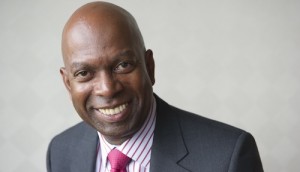
With competitive pressures increasing, voice markets maturing and price wars becoming more prevalent, telecommunications operators in Africa have to improve their efficiencies, cut costs and find new areas in which to grow, especially if they don’t want to be relegated to being “dumb pipes” on which other companies profit from their investment.
These are the views of Fernando Usera, MD of the communications, media and technology practice in sub-Saharan Africa at consulting firm Accenture, who says voice tariffs across the continent are under pressure, which is a problem for operators because many of the bigger markets, like SA, are reaching saturation.
Usera points to decreasing Arpus — average revenue per user is an important financial metric — and price wars in markets like Kenya, saying operators must place a “strong emphasis” on becoming more efficient, improving customer service significantly to reduce churn and expanding into new areas like IT services, mobile banking and other value-added, revenue-generating areas.
Operators must explore new services for consumers around data to try to offset the reduction in voice revenue from increased competition.
In markets like SA, where smaller players have led with aggressive price reductions, the bigger players need to find ways of rewarding the loyalty of clients rather than simply trying to match the cost-per-minute or cost-per-megabyte of rivals. They can also differentiate themselves through stronger innovation — for example, by reinvesting in their networks and building next-generation systems based on long-term evolution (LTE) wireless technology. “LTE could be very useful to help them ‘decongest’ their networks,” Usera says.
“That’s the good thing about competitive markets: it nurtures the imaginations of the dominant operators to look for alternatives to maintain their market share.”

However, they must transform their cultures, which have been built up around the idea of selling voice minutes to subscribers and little else. Spain’s Telefonica has created a digital division focused exclusively on new revenue streams to allow it to survive and continue to lead the market. Left-field competitors such as Google and Apple will leverage operators’ relative lack of agility, so they need to ensure they transform themselves to be able to better compete and offer what Usera calls a “supermarket of services”.
He says it is not inevitable that operators will become dumb pipes, a conduit for services provided by the likes of Apple and Google. However, they’ll have to be smart in choosing and offering new services to their customers and leverage their strengths, such as their billing systems and call centres.
However, in some African markets, price wars, especially in basic voice services, have intensified to such an extent that some operators, policy makers and regulators are worried it could damage the industry by discouraging investment in new network infrastructure and services. But Usera cautions against the moves, seen in some African markets, for regulators to implement a floor on the retail prices companies can charge. Rather, he says, it’s always better to allow the market to regulate itself, even if that causes short-term damage.
If India’s Bharti Airtel, which triggered the price war in Kenya, believes it is “efficient enough” to enjoy “normal profitability” from lower prices, then “that’s something Safaricom needs to meet and it needs to be more efficient”. Safaricom is Kenya’s largest mobile operator. Its CEO, Bob Collymore, has decried the price war in the East African nation, warning it could undermine the industry and eat into government tax receipts.
However, Usera warns that price wars can also be damaging. “I don’t believe in them,” he says. “Prices should be at a level that allows companies to continue to invest in technology, especially on a continent that needs it as much as Africa.”
Ultimately, though, the market always rights itself without regulatory meddling, he says. “In Uganda, a price war started, and because of the lack of profitability [by the operators], it is now ending.” — Duncan McLeod, TechCentral
- Subscribe to our free daily newsletter
- Follow us on Twitter or on Facebook
- Visit our sister website, SportsCentral (still in beta)

